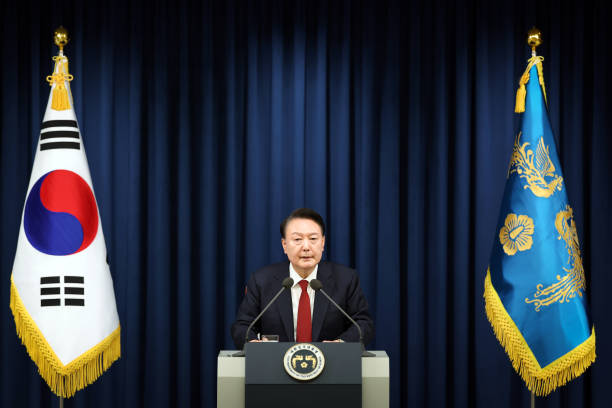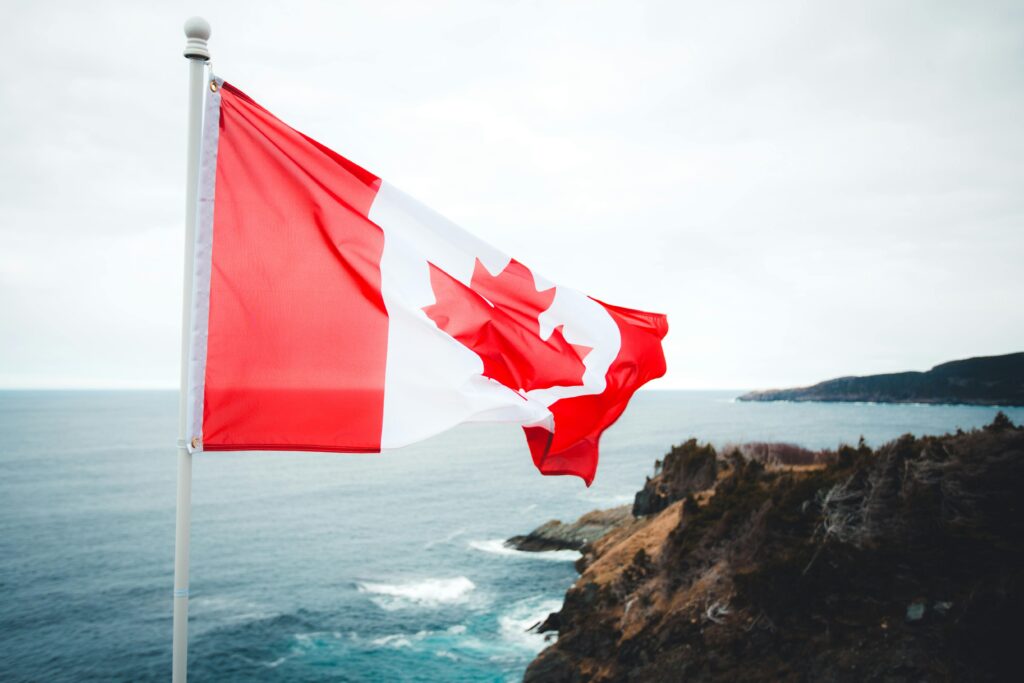South Korean President Declares ‘Emergency Martial Law‘:
South Korean President Yoon Suk-yeol has declared emergency martial law, citing concerns over alleged anti-state activities by opposition parties. He accused them of obstructing the administration of power and colluding with pro-North Korean elements. The declaration has heightened political tensions, with the opposition taking control of parliament and pushing for an investigation into Yoon’s alleged corruption.
This Law grants military authority over civilian administration by suspending normal judicial and administrative processes. It is a significant step in South Korea, where m/law was imposed in 1980 during political unrest.
“Through martial law, I will rebuild and protect the liberated Republic of Korea, which has fallen into the abyss of national destruction… I will eliminate anti-state forces as soon as possible and return the country to normal,” he said.
Also Read:https://coveragezone31.com/elon-musk/
South Korean President Yoon Suk-yeol declared martial law in a surprise televised address, accusing the opposition of obstructing the administration and aligning itself with pro-North Korea agendas. He pledged to restore stability and promised swift action against what he described as “anti-state forces” and urged citizens to endure temporary disruptions for national recovery. Yoon called the move necessary to protect the country in political and economic turmoil.

What is martial law?
Martial law temporarily transfers power from civilian authorities to the military, often during national emergencies like war, unrest, or natural disasters. Under martial law:
- Civil Rights: Civil liberties, such as freedom of assembly, press, or movement, may be suspended.
- Legal System: Military courts often replace civilian courts for certain offenses.
- Governance: The military may oversee governance, law enforcement, and public administration.
- Curfews and Restrictions: Strict controls, like curfews and movement restrictions, are commonly implemented.
It’s usually controversial, as it limits democratic freedoms and can lead to misuse of power.
According to Article 77 of the South Korean constitution, the president can declare martial law in times of war, armed conflict, or national emergency, allowing military authority to replace civilian administration. Extraordinary measures include restrictions on civil liberties such as speech, press, assembly, and even the judiciary and executive. According to reports, the current martial law
President Yoon declared martial law; why?
South Korean President Yoon Suk-yeol has faced a number of crises, including an opposition-dominated parliament, declining approval ratings, and scandals involving his wife. Unable to pass legislation and facing potential investigations into his administration, Yoon has struggled with political obstacles, including a budget dispute and an impeachment effort targeting prosecutors investigating opposition leader Lee Jae-myung. Analysts see Yoon’s decision to declare martial law as a desperate attempt to regain control amid these growing challenges.

What is the response to Yoon’s declaration?
The declaration of this Emergency in South Korea has caught the public by surprise, with many feeling confused, with no immediate change on the streets. Politically, the decision has faced widespread criticism, even from President Yoon’s conservative allies. Opposition leader Lee Jae-myung warned of dire economic and social consequences and urged citizens to rally to the National Assembly. The situation is growing, with uncertainty surrounding the impact of martial law on governance and public life.
The leader of South Korea’s ruling People Power Party, Han Dong-hoon, has criticized President Yoon’s M/law declaration and vowed to oppose it. Under South Korean law, martial law can be lifted by a majority vote in the National Assembly, but implementing this mechanism is complicated because lawmakers are barred from entering parliament. It raises questions about the legal and political ways to address the controversial decree amid growing domestic and international scrutiny. Source Indianexpress.com

